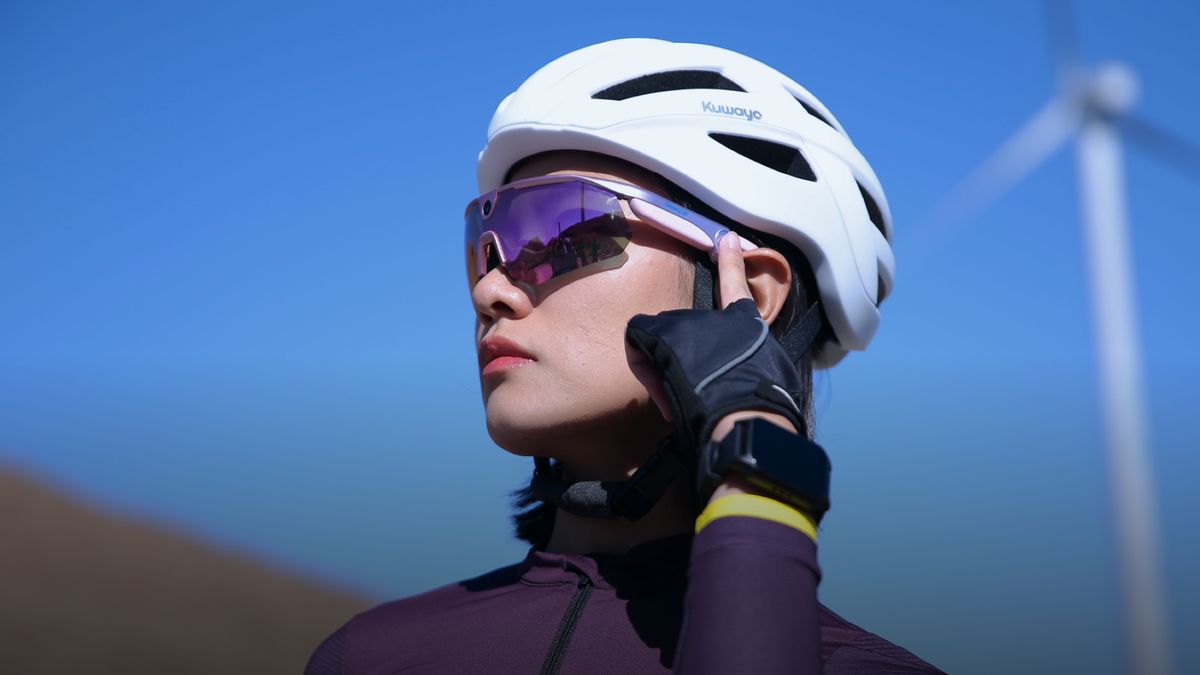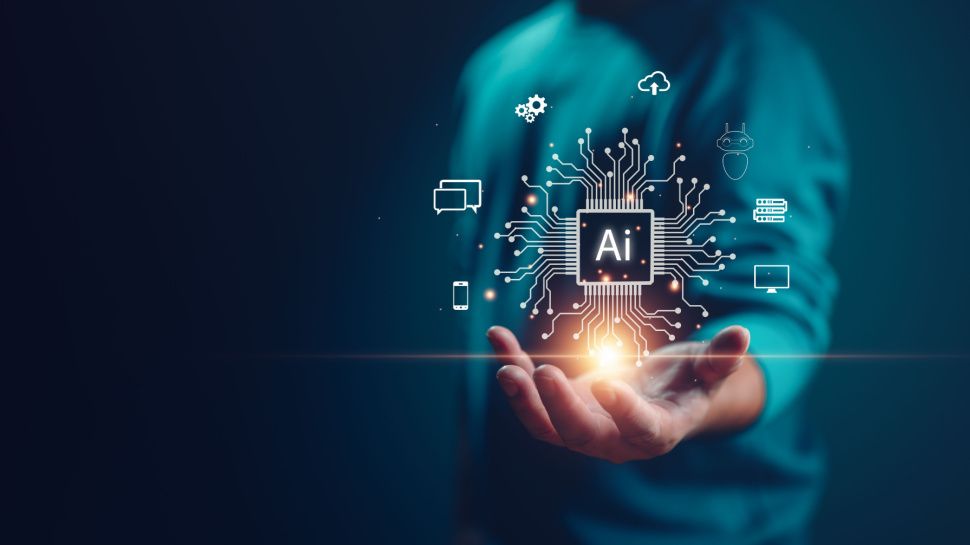Arthur Mensch, tall and lean with a flop of unkempt hair, arrived for a speech last month at a sprawling tech hub in Paris wearing jeans and carrying a bicycle helmet. He had an unassuming look for a person European officials are counting on to help propel the region into a high-stakes match with the United States and China over artificial intelligence.
Mr. Mensch, 31, is the chief executive and a founder of Mistral, considered by many to be one of the most promising challengers to OpenAI and Google. “You have become the poster child for A.I. in France,” Matt Clifford, a British investor, told him onstage.
A lot is riding on Mr. Mensch, whose company has shot into the spotlight just a year after he founded it in Paris with two college friends. As Europe scrambles to get a foothold in the A.I. revolution, the French government has singled out Mistral as its best hope to create a standard-bearer, and has lobbied European Union policymakers to help ensure the firm’s success.
Artificial intelligence will be built rapidly into the global economy in the coming decade, and policymakers and business leaders in Europe fear that growth and competitiveness will suffer if the region does not keep up. Behind their worries is a conviction that A.I. should not be dominated by tech giants, like Microsoft and Google, that might forge global standards at odds with the culture and politics of other countries. At stake is the bigger question of which artificial intelligence models will wind up influencing the world, and how they should be regulated.
“The issue with not having a European champion is that the road map gets set by the United States,” said Mr. Mensch, who just 18 months ago was working as an engineer at Google’s DeepMind lab in Paris, building A.I. models. His co-founders, Timothée Lacroix and Guillaume Lample, also in their 30s, held similar positions at Meta.
In an interview at Mistral’s spartan, whitewashed offices facing the Canal Saint-Martin in Paris, Mr. Mensch said it “wasn’t safe to trust” U.S. tech giants to set ground rules for a powerful new technology that would affect millions of lives.
“We can’t have a strategic dependency,” he said. “That’s why we want to make a European champion.”
Europe has struggled to produce meaningful tech companies since the dot-com boom. As the United States turned out Google, Meta and Amazon, and China produced Alibaba, Huawei and ByteDance, which owns TikTok, Europe’s digital economy failed to deliver, according to a report by France’s Artificial Intelligence Commission. The 15-member committee — which includes Mr. Mensch — warned that Europe was lagging on A.I., but said it had the potential to take a lead.
Mistral’s generative A.I. technology allows businesses to launch chatbots, search functions and other A.I.-driven products. It has surprised many by building a model that rivals the technology developed at OpenAI, the U.S. start-up that ignited the A.I. boom in 2022 with the ChatGPT chatbot. Named after a powerful wind in France, Mistral has rapidly gained ground by developing a more flexible and cost-efficient machine-learning tool. Some big European firms are beginning to use its technology, including Renault, the French auto giant, and BNP Paribas, the financial services company.
The French government is giving Mistral its full-throated support. President Emmanuel Macron has called the company an example of “French genius” and had Mr. Mensch for dinner at the Élysée presidential palace. Bruno Le Maire, the country’s finance minister, frequently praises the company, while Cédric O, the former France digital minister, is an adviser to Mistral and owns shares in the start-up.
The French government’s backing is a sign of A.I.’s growing importance. The United States, France, Britain, China, Saudi Arabia and many other countries are trying to strengthen their domestic capabilities, setting off a technological arms race that is influencing trade and foreign policy, as well as global supply chains.
Mistral has emerged as the strongest European contender in the global battle. Yet many question whether the company can keep up with large American and Chinese competitors and develop a sustainable business model. In addition to the considerable technological challenges of building a successful A.I. company, the computing power needed is staggeringly expensive. (France says its cheap nuclear power can meet the energy demand.)
OpenAI has raised $13 billion, and Anthropic, another San Francisco firm, has raised more than $7.3 billion. Mistral has so far raised roughly 500 million euros, or $540 million, and earns “several million” in recurring revenue, Mr. Mensch said. But in a sign of Mistral’s promise, Microsoft took a small stake in February, and Salesforce and the chipmaker Nvidia have backed the start-up.
“This could be one of the best shots that we have in Europe,” said Jeannette zu Fürstenberg, the managing director of General Catalyst and a founding partner of La Famiglia, two venture capital firms that invested in Mistral. “You basically have a very potent technology that will unlock value.”
Mistral subscribes to the view that A.I. software should be open source, meaning that the programming codes should be available for anyone to copy, tweak or repurpose. Supporters say allowing other researchers to see the code will make systems safer and fuel economic growth by speeding its use among businesses and governments for applications like accounting, customer service and database searches. This week, Mistral released the latest version of its model online for anyone to download.
OpenAI and Anthropic, by contrast, are keeping their platforms closed. Open source is dangerous, they argue, because it has the potential to be co-opted by for bad purposes, like spreading disinformation — or even creating destructive A.I.-powered weapons.
Mr. Mensch dismissed such concerns as the narrative of “a fear-mongering lobby” that includes Google, Microsoft and Amazon, which he said were seeking to cement their dominance by persuading policymakers to enact rules that would squash rivals.
A.I.’s biggest risk, Mr. Mensch added, is that it will spur a workplace revolution, eliminating some jobs while creating new ones that will require retraining. “It’s coming faster than in the previous revolutions,” he said, “not in 10 years but more like in two.”
Mr. Mensch, who grew up in a family of scientists, said he was fascinated by computers from a young age, learning to program when he was 11. He played video games avidly until age 15, when he decided he could “do better things with my time.” After graduating from two elite French universities, École Polytechnique and École Normale Supérieure, he became an academic researcher in 2020 at France’s prestigious National Center for Scientific Research. But he soon pivoted to DeepMind, an A.I. lab acquired by Google, to learn about the industry and become an entrepreneur.
When ChatGPT burst onto the scene in 2022, Mr. Mensch teamed up with his university friends, who decided that they could do the same or better in France. At the company’s airy work space, a corps of sneaker-wearing scientists and programmers now tap busily at keyboards, coding and feeding digital text culled from the internet — as well as reams of 19th-century French literature, which is no longer subject to copyright law — into the company’s large language model.
Mr. Mensch said he felt uncomfortable with Silicon Valley’s “very religious” fascination with the concept of artificial general intelligence, the point when, tech leaders like Elon Musk and Sam Altman believe, computers will overtake the cognitive ability of humans, with potentially dire consequences.
“The whole A.G.I. rhetoric is about creating God,” he said. “I don’t believe in God. I’m a strong atheist. So I don’t believe in A.G.I.”
A more imminent threat, he said, is the one posed by American A.I. giants to cultures around the globe.
“These models are producing content and shaping our cultural understanding of the world,” Mr. Mensch said. “And as it turns out, the values of France and the values of the United States differ in subtle but important ways.”
With his growing clout, Mr. Mensch has stepped up his calls for lighter regulation, warning that restrictions will damage innovation. Last fall, France successfully lobbied in Brussels to limit regulation of open-source A.I. systems in the European Union’s new Artificial Intelligence Act, a victory that helps Mistral maintain a rapid development pace.
“If Mistral becomes a big technical power,” said Mr. O, the former digital minister who led the lobbying effort, “it’s going to be beneficial for all of Europe.”





